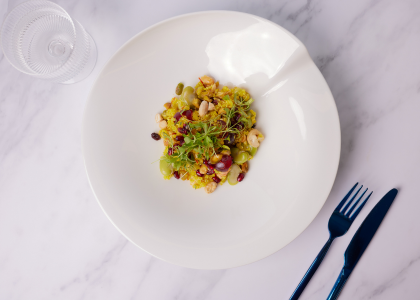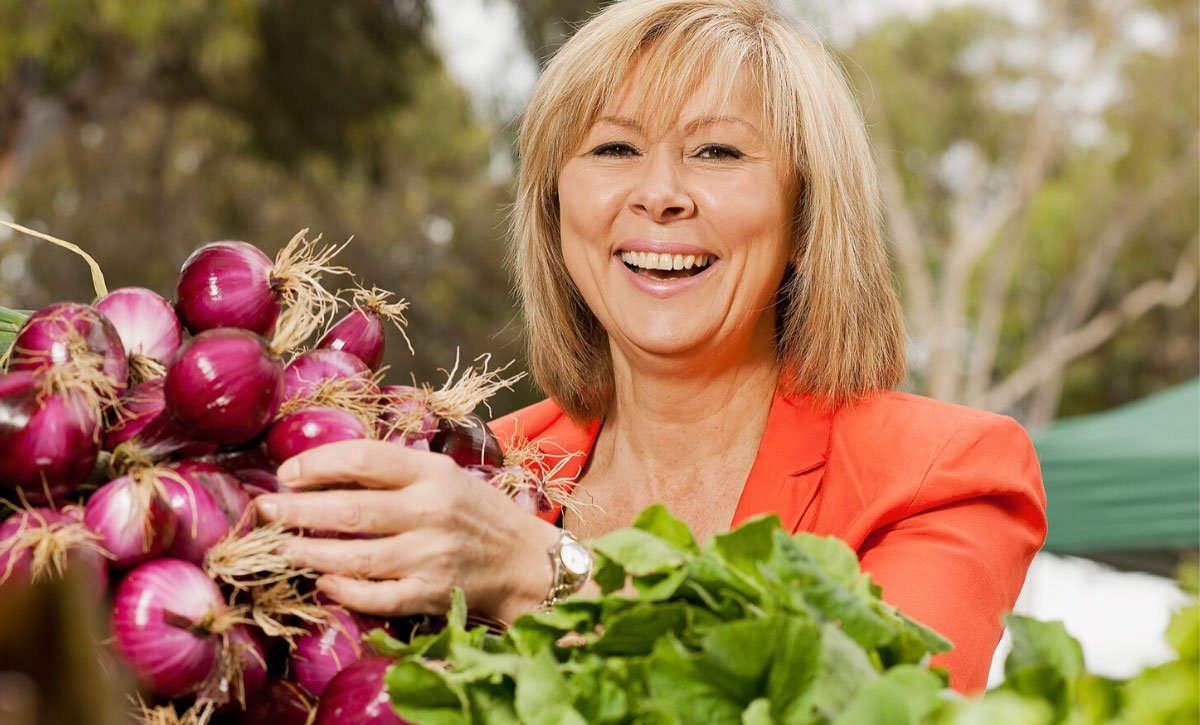
A plant-based recipe to celebrate great chefs around the world
This International Chef's Day, we're raising a fork to the hard-working and passionate chefs across the world, including Le Cordon Bleu chefs in training, ...

I was always inclined towards food. After working in the UK at Blenheim Palace — the birthplace of Sir Winston Churchill and the home of the Duke and Duchess of Marlborough — and learning to cook game birds and all sorts of wonderful things, I decided to do Commercial Cookery when I returned to Australia and make a career out of food. I loved the course so much that I won the dux award and was headhunted by the Hyatt Hotel who were just about to open in Adelaide. From there I was promoted with a transfer to the Hyatt Regency on Grand Cayman Island in the Caribbean. These experiences proved invaluable when I returned to Australia and launched my own hospitality businesses on the Limestone Coast and Coonawarra.
To be honest, I saw a lot of owners and managers who weren’t running their businesses well, and I thought there was a better way. Being efficient in your processes and creating a sustainable business model is not hard. I was also very passionate about creating a fresh new approach to dining that captured the needs of the customer base at that time. I thought, why not create a tourism experience out of the food produced from the region with each ingredient telling a story about culture, tradition, provenance and geography. That’s how my restaurants were born.
I was brought up with a strong work ethic, and I also love a challenge! I didn’t find finances and funding an issue. I only spent what I had. As I made money, I made improvements and grew the business. The hardest part was managing staff and ensuring they were happy. I believe staff reflects the values of the owner of the business. If they’re happy, they are loyal and perform very well.
Three words. Quality, quality, quality.
Really long hours, and a lot of cleaning! Going that extra mile to understand your customer base. What is happening culturally, with the government food policy, the latest trends? If I opened a food business now, it would be all about wellness and sustainability including ecologically and business wise.
High profit but a lot of work! The most important aspect is providing quality facilities and being available for your clients by having the local information they need. Providing a service basically being a concierge for your guests.
After running successful restaurants and bed and breakfasts for over a decade, I was flicking through a magazine when I came across a scholarship for a Masters in Gastronomy at the University of Adelaide. I applied for it and was successful. Doing this master’s degree changed my life. After graduating, I won another scholarship at the University, this time for a Masters in Entrepreneurship and Innovation when I pitched a business idea relating to ethical foods.
By this stage, I was hooked to study and research, so when one of my lecturers suggested doing a PhD on local foods in Australia, I leapt at the opportunity. My thesis on the history of local foods in Australia took me back to the beginning of European settlement in Australia when sourcing local food was a matter of survival. I came across so many different concepts relating to local food that were unique to Australia.
Currently, I work as an Academic Manager for Le Cordon Bleu, lecturing in the Master of Hospitality Management at UniSA, which I love, and retain a strong working relationship with the University of Adelaide’s Business School. I am also a member of the University’s Food Values Research Group.
Simple. Quality always sells.
You need to be passionate about your business idea. Backing yourself, having the right business knowledge, being driven and working hard are all key if in achieving profitability. Creativity comes in many forms, from innovative systems and processes, i.e.: a style of service, to the way you put ingredients together, in a way grabs the interest of your customer. Creativity and profitability go hand in hand.
It just makes sense to use local food. It reflects the culture of the region and this creates a tourism experience for the customer. Local food has a shorter supply chain and keeps the local economy strong.
I see opportunities around native and indigenous foods; sustainable, organic, local, and ethical foods; veganism and plant-based diets and wellness foods relating to diet and nutrition. Technologies for example drones that can simplify agricultural processes.
I love them all! Each role has led to the next one in a very linear way. I started my career in hospitality, then quickly fell in love with what was happening in the kitchen. I love the alchemy of food and all the interesting ways you can make a career out of it. Using local produce made sense to me well before it became fashionable.
Copyright © 2025 Le Cordon Bleu International B.V. All Rights Reserved.